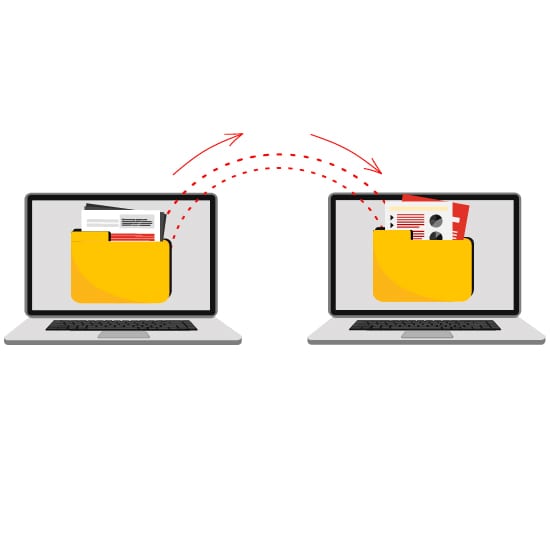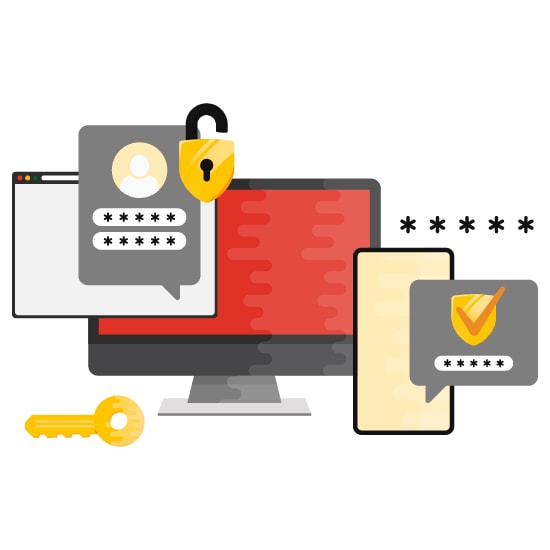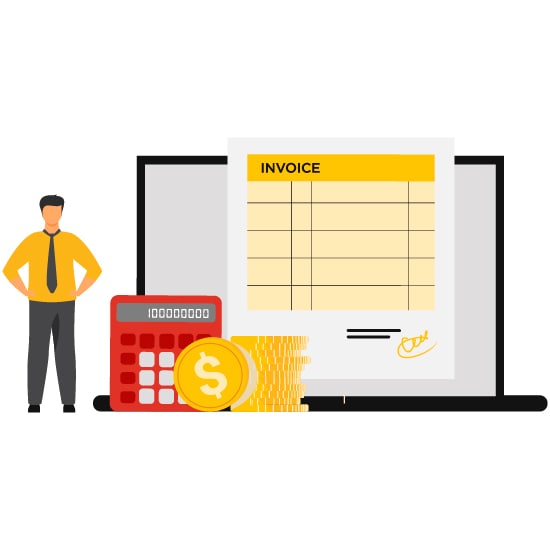
Transform your business with our advanced cloud-based technology solution

Compliant with the latest e-invoicing regulations by ZATCA

Seamless integration with your source systems

Secure data with Multi-Factor Authentication and key vault

Scalable and reliable SaaS platform that offers with maximum efficiency

Localisation capabilities for global operations.

Customisable with user friendly dashboards and reports

Real-time invoice data validation for maximum compliance
Key product features
Creates dynamic and vibrant user console for your staff to access the tool from a single screen, incorporating dashboard analytics
Easy setup to handle integration to your underlying transaction source systems as well as the connectivity to ZATCA platform
To help you identify non-compliance issues relating to data requirements for e-invoices through live validation alerts with error response codes
Reduces risk by generating Real-time compliant e-invoices incorporating all of the legal specifications of the ZATCA law
Increases operational efficiency by storing and archiving all system generated e-invoices the required naming conventions and data retention policy
Why PwC e-invoicing Solution?
- PwC has been at the forefront in tax technology services and has consistently invested in building its expertise in evolving technologies.
- PwC's e-Invoicing Solution brings together process, technology, tax, legal and accounting experts making your e-Invoicing process efficient.
- The tool is hosted in a scalable and flexible cloud-based architecture, streamlining and automating the current e-invoicing process for clients, enabling a secure and highly efficient document exchange with all of their clients and business partners.
- Enhanced dashboarding features will help users access the invoices processed with minimal advice or support.
PwC e-invoicing Brochure
برنامج الفوترة الإلكترونية من بي دبليو سي
Frequently asked questions (FAQ)
What is e-invoicing?
- e-invoicing, also known as electronic invoicing, refers to the process of generating, sending, and receiving invoices in a digital format. It eliminates the need for traditional paper-based invoices and streamlines the invoicing process through automated and paperless methods. By adopting e-invoicing, businesses can reduce manual data entry, improve accuracy, enhance efficiency, and achieve cost savings.
How does PwC e-invoicing solution integrate with your business systems?
- The PwC e-invoicing Solution offers two integration approaches tailored to your specific requirements. Firstly, it provides a comprehensive RESTful API (Application Programming Interface) that enables seamless integration between the solution and your existing business systems. This API facilitates real-time data transfer, synchronization, and communication between the e-invoicing solution and your source systems, ensuring smooth and efficient integration.
- Alternatively, the PwC e-invoicing Solution also supports a file-based approach, where you can generate and exchange invoices using specific file formats. This method allows for batch processing and can be utilized if real-time integration through the API is not required or feasible for your business.
How do we generate compliant E-invoices?
- The PwC e-invoicing Solution enables the generation of compliant E-invoices by providing the necessary features and formats to meet regulatory requirements. It allows for the creation of Simplified and Standard Tax Invoices, as well as associated Debit/Credit Notes, ensuring that all mandatory fields are included. Additionally, where required, the solution incorporates QR Codes into the invoices. The generated invoices are available in XML format, which ensures structured data for automated processing, as well as PDF/A-3 format for archiving purposes, guaranteeing long-term document integrity and preservation. With these capabilities, the PwC e-invoicing Solution ensures that your generated invoices align with the required compliance standards.
When will e-invoicing (FATOORAH) be implemented?
- Phase 1 of the e-invoicing mandate in Saudi Arabia, implemented by the Zakat, Tax, and Customs Authority (ZATCA), has been successfully launched. As of now, suppliers are no longer permitted to create or retain paper, picture format, or PDF invoices. This initial phase aims to transition businesses to digital invoicing practices.
- Phase 2, known as the integration phase, is scheduled to commence on 1 January 2023. The integration phase will be rolled out gradually in several waves, ensuring a smooth transition for taxpayers. During this phase, eligible participants will need to integrate their systems with the designated e-invoicing platform to comply with the mandated requirements.
Is e-invoicing (FATOORAH) mandatory for me?
- e-invoicing (FATOORAH) is mandatory for taxpayers based on specific criteria. The requirement applies to different waves of participants depending on their taxable revenue. Here are the thresholds and effective dates:
- Wave 1: Taxable revenue exceeding SAR 3 billion, effective from 1 January 2023.
- Wave 2: Taxable revenue of more than SAR 500 million, with a go-live date of 1 July 2023.
- Wave 3: Taxable revenue exceeding SAR 250 million during calendar year 2021 or 2022, starting from 1 October 2023.
- Wave 4: Taxable revenue exceeding SAR 150 million during calendar year 2021 or 2022.
- Wave 5: Annual taxable revenue (taxable supplies) exceeding SAR 100 million during the calendar year 2021 or 2022.
- Wave 6: Taxable revenue of more than SAR 70 million during the calendar year 2021 or 2022.
- If your taxable revenue falls within any of these thresholds, you are required to comply with e-invoicing (FATOORAH) regulations.










